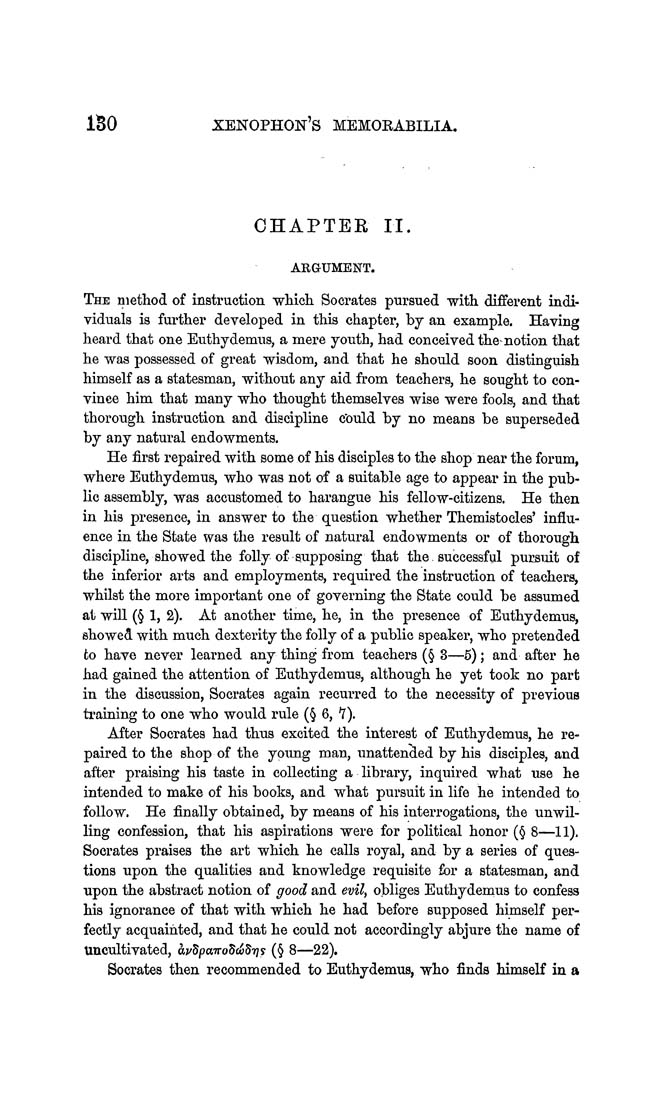180 xenophon's memoeabilia.
CHAPTER II.
ARaUMENT.
The niethod of instruction which Socrates pursued with different indi¬
viduals is further developed in this chapter, by an example. Having
heard that one Euthydemus, a mere youth, had conceived the notion that
he was possessed of great wisdom, and that he should soon distinguish
himself as a statesman, without any aid from teachers, he sought to con¬
vince him that many who thought themselves wise were fools, and that
thorough instruction and discipline Could by no means be superseded
by any natural endowments.
He first repaired with some of his disciples to the shop near the forum,
where Euthydemus, who was not of a suitable age to appear in the pub¬
lic assembly, was accustomed to harangue his fellow-citizens. He then
in his presence, in answer to the question whether Themistocles' influ¬
ence in the State was the result of natural endowments or of thorough
discipline, showed the folly of supposing that the, successful pursuit of
the inferior arts and employments, required the instruction of teachers,
whilst the more important one of governing the State could be assumed
at will (§ 1, 2). At another time, he, in the presence of Euthydemus,
showed with much dexterity the folly of a public speaker, who pretended
to have never learned any thing from teachers (§ 3—5); and after he
had gained the attention of Euthydemus, although he yet took no part
in the discussion, Socrates again recurred to the necessity of previous
ti'aining to one who would rule (§ 6, 7).
After Socrates had thus excited the interest of Euthydemus, he re¬
paired to the shop of the yoimg man, unattended by his disciples, and
after praising his taste in collecting a library, inquired what use he
intended to make of his books, and what pursuit in life he intended to
follow. He finally obtained, by means of his interrogations, the unwil¬
ling confession, that his aspirations were for poHtical honor (§ 8—11).
Socrates praises the art which he calls royal, and by a series of ques¬
tions upon the qualities and knowledge requisite £or a statesman, and
upon the abstract notion of good and evil, obliges Euthydemus to confess
his ignorance of that with which he had before supposed himself per¬
fectly acquainted, and that he could not accordingly abjure the name of
uncultivated, ap^pairoddoditi^ (§ 8—22).
Socrates then recommended to Euthydemus, who finds himself in a
|








